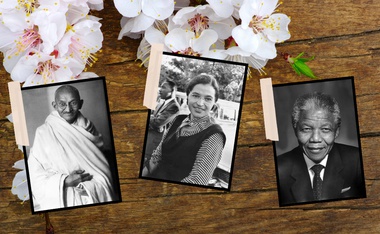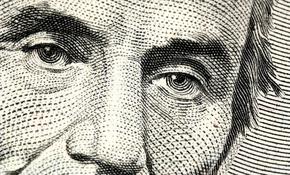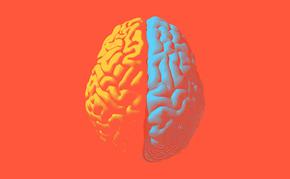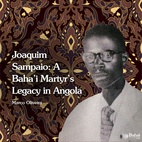The views expressed in our content reflect individual perspectives and do not represent the authoritative views of the Baha'i Faith.
The act of offering the self, rather than money or property, for a greater good requires wisdom, love, and faith. We can find the ultimate examples of self-sacrifice in the lives of the prophets.
The Biblical tale of Abraham’s near-sacrifice of his son serves as just one example, but many prophets suffered persecution and even death to bring God’s message to humanity. Think of the dramatic sacrifices of their lives made by Jesus and the Bab, for instance. Speaking of Christ’s pain and suffering, Baha’u’llah said:
Know thou that when the Son of Man yielded up His breath to God, the whole creation wept with a great weeping. By sacrificing Himself, however, a fresh capacity was infused into all created things.
Baha’u’llah also recognized that sacrifice is part of the prophet’s job description: “By their sanction and authority, every Prophet of God hath drunk from the chalice of sacrifice …” The prophets and founders of the world’s great Faiths willingly make these sacrifices to achieve the greatest good imaginable: leading us to the Creator, and to a higher and more spiritual state for all humanity.
The history of the Baha’i Faith offers many examples of this kind of sacrifice. On the June 23rd, 1870, Mirza Mihdi, Baha’u’llah’s youngest son, while walking on a rooftop engrossed in thoughtful prayer, accidentally fell through a skylight and was critically injured. Baha’u’llah offered to heal him but Mirza Mihdi requested instead that “his life be accepted as a ransom for those who were prevented from attaining the presence of their Beloved.” Baha’u’llah accepted his son’s wish, and Mirza Mihdi died at the age of twenty-two.
RELATED: On the Meaning of True Leadership
But What Can We Mere Mortals Do?
Most of us will not be called to such a dramatic sacrifice as Christ’s crucifixion; rather ours will be a slow, conscious effort towards gradually giving up the demands of the insistent self for the sake of a higher and more noble purpose. Doing that requires developing a sense of detachment from the self and the ego, while dedicating ourselves to something greater.
But why would anyone want to do so? Detachment from self is hard work! Let’s ponder this sacrificial act by looking at a few significant examples. In the animal kingdom, sacrifice is compelled. Does the fly really want to be food for the birds? Does a deer want to be dinner for a wolf? No. They do not make sacrifices consciously or willingly, yet their sacrifices are essential to the cycle of life.
For humans, however, the act of self-sacrifice can only happen as a conscious decision. Everyone can make that heroic decision by dedicating themselves to a higher goal. There are any number of brilliant examples of this self-sacrifice throughout history, and those examples continue to inspire us all to reach for the greatness they represent.
As just one example, consider Nelson Mandela, who championed freedom during the apartheid regime of South Africa.
Mandela
Apartheid, a system of legal segregation imposed by the ruling government of South Africa between 1948 and 1994, reduced the rights of the majority “non-white” population in favor of the white minority. The government enforced racial separation in education, medical care, and public spaces such as beaches. Black people routinely received inferior service compared to other citizens. In December 1956, when Mandela and others protested against this injustice in their native land, they were arrested and imprisoned. Later, Mandela was tried as the leader of the ANC and was found guilty. As part of his closing statement at his trial, Mandela said:
During my lifetime I have dedicated myself to the struggle of the African people. I have fought against white domination, and I have fought against black domination. I have cherished the ideal of a democratic and free society in which all persons live together in harmony and with equal opportunities. It is an ideal which I hope to live for and to achieve. But if needs be, it is an ideal for which I am prepared to die.
Rosa Parks
Of course, racial segregation was also a fact of life across the Atlantic Ocean in the southern states of America. It was a common public transportation practice, for example, to require Black people to sit in the back of the bus. In December, 1955, Rosa Parks, an African-American woman, boarded a bus and took a seat in the foremost row reserved for Black riders. After a few stops, the seats for Caucasians filled up. When another White man boarded the bus, the driver asked everyone in Parks’ row to move to the back to make room for the Whites. Everyone complied except Parks. Her refusal earned her an arrest and, upon being found guilty, a $10 fine plus an additional $4 for court costs. Some consider this incident to be the start of the American Civil Rights Movement.
Participants in that movement made a clear choice that put their lives at risk. During this turbulent time in America, thousands were jailed, homes and other properties were burned to the ground, many were beaten and tortured, and some were killed. These sacrifices led directly to changes in the law that prohibited segregation and sought to prevent or redress other forms of racial discrimination.
RELATED: Gandhi and King, Non-Violence and Change
Gandhi
Mahatma Gandhi employed nonviolent means to fight the oppression arising from the British Empire’s colonization of India. He was put in jail for his protests. Eventually Gandhi’s aim was realized when India gained independence, but he paid the ultimate price when he was assassinated.
History is filled with stories of heroic deeds that have completely changed the direction of human lives. Like Gandhi, Mandela, and Parks, countless others have fought for equality, justice, and peace over decades and centuries. Will you be one of them?

















Comments
Sign in or create an account
Continue with Googleor